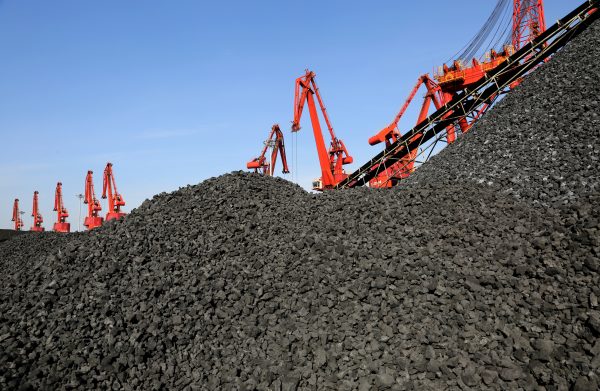While Australian coal and other key resource exports to China have continued to enjoy strong growth as commodity markets weakened across the world, glitches in the clearance of coal imports through Chinese ports are a recurring issue in managing the trade growth. The Chinese thermal coal market is being shaken by accelerating intervention to manage climate change and the huge pollution problem that authorities are under pressure to solve. Clunky implementation of controls over coal imports around clearing local markets and environmental controls is par for the course. There was a similar episode that didn’t slow record trade volumes last year. It’s an issue that needs to be dealt with — and both countries need to put work into dealing with it — but it’s a trivial issue in the broader picture of Australia–China trade.
China is increasingly cast as a country that smothers market competition with state intervention closing off competitive trade. The opposite has been the case for Australian suppliers to China’s key resource markets. Australia supplies 23 per cent of all Chinese thermal coal and 53 per cent of coal imports, up from 32 per cent in 2010. Since the peak of the commodities boom, the Australian share in Chinese iron imports has grown from 44 per cent to 61 per cent. Not only has Australia lifted its share of foreign supplies, total foreign procurements of iron ore in China have risen from 50 per cent in 2005 to 90 per cent of all supplies, as inefficient domestic suppliers have retreated. Quality Australia resources have gained share in the intensely competitive but open Chinese market. The growth of Australian exports to China continues across the board despite political troubles in the relationship.
The Australia–China trade relationship, like all of Australia’s trade relationships with Northeast Asia, is one of deep economic interdependence where both partners are heavily invested in the reliability of the trade and playing by the international rules.
China has no interest right now in messing with the core rules under which it manages its trade with the rest of the world. China signed up to those rules when it joined the WTO, helping it become the world’s largest trading nation. Its growth has been tied inextricably to trade. China has a strong track record of abiding by those rules — it’s in its interest to do so — no matter what Washington may say. That’s not to say there aren’t big problems that aren’t covered by the rules. The issues of contention with China over intellectual property right protections, technology transfer arrangements, services and investment are largely outside their scope. They’re to be negotiated, best multilaterally not just between China and the United States.
It’s mutual commitment to the legal and other disciplines of the global trade regime that protects all countries against the political weaponisation of trade. China has a huge stake in that regime because it provides both economic and political security around the inevitable uncertainties in doing international business big time. That’s where countries like Australia need to focus in working with China multilaterally and bilaterally, within the framework of our free trade agreement, to ensure the rules are adhered to and strengthened.
Eagerness to point to the delays in clearance of Australian coal imports as evidence of Chinese economic coercion over Australian actions against Huawei and other matters needs be tempered by consideration and understanding of these facts and the system to which China has signed on.
Yet many reckon China has form in banning imports of Norwegian salmon, Filipino bananas or export embargos on rare earth metals to Japan and a raft of restrictions on Korean services from pop culture to tourism. China has clearly pushed the boundaries although not all are clear cut trade breaches. Importantly, when countries have brought a case against China in the WTO, as did Japan, Europe and the United States in the case of rare earth metals, China has abided by the ruling against it. That case in fact had little to do with political coercion. China’s record on abiding by WTO rulings is actually better than that of most major traders, including the United States.
This is a time when China needs to preserve confidence in the international market and its rules. China needs those rules and friends as it deals with trade tensions with the United States. Intervening in international markets inevitably backfires, even for large countries. The confidence of Australian suppliers — the most competitive in the world — in China as a reliable customer would be affected raising the price of Chinese resource imports for a whole range of strategic raw materials, as well as coal and gas.
Should disruptions to the flow of the coal trade be added to the list of other episodes that suggest political coercion when Chinese political nerves are touched? Top Australian officials are right about being crystal clear about what may have caused the disruptions in the Chinese coal trade and they see no evidence of it.
What’s sobering about the episode is the fracture of trust and the thin engagement it exposes in the relationship with China, despite the assurance of the Prime Minister and his deputy, and the big job that’s still to be done in rebuilding that.
Shiro Armstrong is Director of the Australia–Japan Research Centre and Director of the Asian Bureau of Economic Research at The Australian National University.
Peter Drysdale is Professor of Economics and head of the Asian Bureau of Economic Research at The Australian National University.

